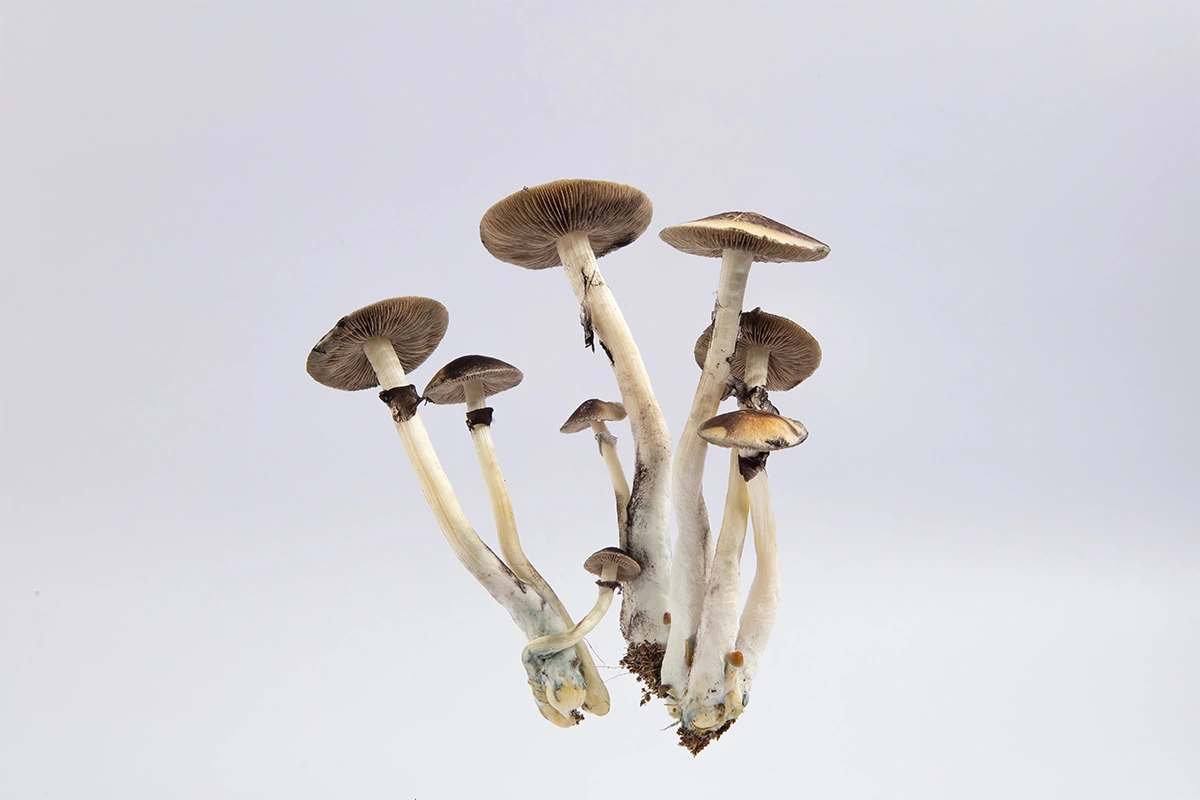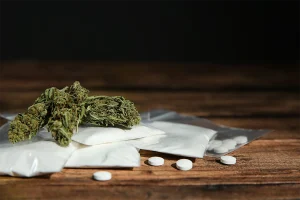A new study into the therapeutic effects of psilocybin suggests that use of the psychedelic drug can help ease psychological distress in people who had adverse experiences as children. Researchers said psilocybin appeared to offer “particularly strong benefits to those with more severe childhood adversity.”
The study surveyed 1,249 people in Canada, ages 16 and older, who completed a questionnaire used to assess experiences of childhood trauma. They were also asked about psilocybin use, including when they last consumed the substance, their frequency of use, and how strong the doses were.
“We found that the effect of adverse childhood experiences on psychological distress was lower among those who had used psilocybin compared to those who had not,” the study says, “suggesting potential benefit of psilocybin in treating the psychological consequences of adverse childhood experiences.”
“The effect of adverse childhood experiences on psychological distress was lower for people who had recently used psilocybin.”
The authors said their findings aligned with other published research, such as a study of more than 213,000 U.S. adults that found that lifetime use of psilocybin was associated with lower odds of a past-year major depressive episode.
“Taken together, our results and the existing literature point to a positive therapeutic potential of psilocybin,” the report says. “While naturalistic use of psilocybin is very different from therapeutic trials, our findings converge with emerging evidence from clinical trials and suggest that there may be benefits of use outside of therapeutic settings.”
Of the respondents, nearly half (49.9 percent) said they often or always used psilocybin to address mental health or emotional challenges, while 32.2 percent said they sometimes used psilocybin for that purpose. People who scored high for adverse childhood experiences were significantly more likely to use psilocybin for mental health, although high adverse experiences scores weren’t associated with increased likelihood to use psilocybin for other reasons, such as to enhance the senses, for pleasure, to connect with others, to relieve boredom, for spiritual purposes and for self-enhancement and -understanding.
How to Grow Shrooms Bundle
Take Both of Our Courses and Save $90!
“Importantly,” wrote researchers, “there appears to be a dose response effect, with more exposure to psychedelics being associated with greater psychological effect and improvements to psychological well-being.”
READ: Psilocybin for Depression: What You Should Know
“Psilocybin therapy may…feasibly help in supporting survivors of adverse childhood experiences with particularly strong benefits to those with more severe childhood adversity.”
Authors also noted that “feasibility studies suggest that psilocybin has a good safety profile and low addiction potential, particularly at low doses and even among those with complex psychiatric needs.”
Nevertheless, they wrote, “psilocybin use outside the care of a provider can result in adverse experiences,” such as psychotic episodes or bad trips characterized by anxiety or paranoia.
Among people who did not use psilocybin in the past 12 months, “commonly cited reasons were not knowing where to get psilocybin (41.5%), being afraid of legal repercussions about consuming psilocybin (82.9%), and being worried about a bad trip or negative experience while using (48.1%).
The paper, authored by researchers at Simon Fraser University, Athabasca University, University of British Columbia and University of Michigan, was published [earlier this month] in the Journal of Psychoactive Drugs.
The team’s results add to a growing body of research showing the potential of psilocybin and other entheogens to treat a range of mental health conditions.
Last month researchers at Johns Hopkins University, Ohio State University and Unlimited Sciences published findings showing an association between psilocybin use and “persisting reductions” in depression, anxiety and alcohol misuse—as well as increases in emotional regulation, spiritual wellbeing and extraversion.
Those results were “highly consistent with a growing body of clinical trial, behavioral pharmacology, and epidemiological data on psilocybin,” authors of that study said. “Overall, these data provide an important window into the current resurgence of public interest in classic psychedelics and the outcomes of contemporaneous increases in naturalistic psilocybin use.”
Meanwhile, a separate study from the American Medical Association (AMA) recently came out showing that people with major depression experienced “clinically significant sustained reduction” in their symptoms after just one dose of psilocybin.
The findings aren’t limited to psilocybin. For example, a peer-reviewed study published in the journal Nature recently found that treatment with MDMA reduced symptoms in patients with moderate to severe PTSD—results that position the substance for approval by the Food and Drug Administration (FDA) as soon as next year.
Another study published in August found that administering a small dose of MDMA along with psilocybin or LSD appears to reduce feelings of discomfort like guilt and fear that are sometimes side effects of consuming so-called magic mushrooms or LSD alone.
A first-of-its-kind analysis released in June offered novel insights into the mechanisms through which psychedelic-assisted therapy appears to help people struggling with alcoholism.
At the federal level, the National Institute on Drug Abuse (NIDA) recently started soliciting proposals for a series of research initiatives meant to explore how psychedelics could be used to treat drug addiction, with plans to provide $1.5 million in funding to support relevant studies.
*This article was originally published by Marijuana Moment.
Have You Heard…?
Did you know that psilocybin isn’t the only psychedelic being studied for depression? Researchers began studying the effects of dimethyltryptamine (DMT) on depression for the first time in 2020.
Interest in ketamine has increased in the last decade. Both patients and clinicians have found the dissociative drug to be a promising new tool for treating one of the most pressing mental health issues of our time: depression. There may be a catch.
Many psychedelics may interact with classic anti-depressants like selective serotonin reuptake inhibitors (SSRIs). “It seems, from what I’m hearing from some people, that there’s a blunted response, but there’s no double-blind, placebo-controlled randomized trial to back up what I’m hearing from people anecdotally,” Dr. Julie Holland tells DoubleBlind.

DoubleBlind is a trusted resource for news, evidence-based education, and reporting on psychedelics. We work with leading medical professionals, scientific researchers, journalists, mycologists, indigenous stewards, and cultural pioneers. Read about our editorial policy and fact-checking process here.

DoubleBlind Magazine does not encourage or condone any illegal activities, including but not limited to the use of illegal substances. We do not provide mental health, clinical, or medical services. We are not a substitute for medical, psychological, or psychiatric diagnosis, treatment, or advice. If you are in a crisis or if you or any other person may be in danger or experiencing a mental health emergency, immediately call 911 or your local emergency resources. If you are considering suicide, please call 988 to connect with the National Suicide Prevention Lifeline.



